
About the Book
-
Author:
- Ryan Graudin
Cover Story: A-woo-oo-oo!
BFF Charms: Survivor, Eventually, Torn
Talky Talk: That’s Not How We Say It
Bonus Factors: Jewish Culture, Monsters and Miracles, Mercy
Anti-Bonus Factor: Holocaust
Relationship Status: Cautionary Tale
Caution: This review contains spoilers for the previous book in the series, Wolf by Wolf.
Cover Story: A-woo-oo-oo!
Yael does have a thing for wolf symbolism, and the font practically screams “Nazi Germany.” I understand why they didn’t show her face, since she herself is not sure what she looks like, but the whole thing looks more like horror than history.
The Deal:
Yael thought she’d finally accomplished her mission: shapeshift into a celebrity motorcycle racer, finish the race, and kill Adolf Hitler at the victory gala. Except that it wasn’t the real Hitler, but a shapeshifter like her – and now the SS is out for her blood. Rival racers Felix and Luka, suspected of being her accomplices, have no option but to escape with her, even though finding out that she impersonated their sister/ex-girlfriend is a shock to say the least. Now Yael’s mission is more complicated than ever: learn the truth about the Nazis’ shapeshifting experiments, defeat a dictator who keeps a steady supply of body doubles, navigate her messy relationships with Felix and Luka, and by the way, don’t get killed. In the middle of all this, will she ever get back what was stolen from her as a child: her face, her family name, and her true identity?
BFF Charms: Survivor, Eventually, Torn

Yael has endured the Holocaust, her best friend’s suicide, and years of running and hiding. It’s made her tough, but understandably single-minded; revenge has always come first. Now she’s on the run, having killed a stranger who shared her condition and never did her any harm. She’s hiding in a Russian village destroyed by Wehrmacht soldiers, while at the same time she’s relying for mutual survival on Felix and Luka, the sons of those soldiers. The line between enemies and allies is becoming more blurred than she ever expected. Survival is one thing; deciding what kind of future she wants to survive for is another matter.
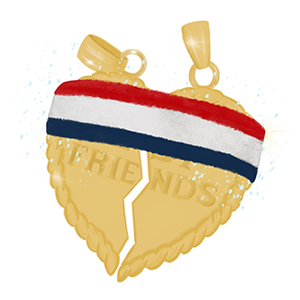
Luka Löwe has been growing slowly disillusioned with the National Socialist regime for some time, but that hasn’t stopped him from wanting their approval badly enough to cheat on the race. Getting to know Yael, learning what his countrymen have done to her and how much she’s willing to risk for a better world, forces him to take a good hard look at himself and figure out what really matters.

Felix Wolfe is terrified for his life and desperate to keep his family safe. I can understand that, but it doesn’t make his choices any less wrong.
Swoonworthy Scale: 0
As separate characters, or even as enemies-to-allies, Yael and Luka make sense to me, but as lovers, they just don’t. Even leaving aside the whole ex-girlfriend identity theft issue, she treats him with grudging tolerance at best. His Hitler Youth uniform “grate[s] on her nerve endings.” When asked by a fellow resistance fighter why she keeps him around, the closest thing to a defense she can muster is: “He’s not like the other National Socialists.” So it took me by surprise when they started kissing in a war zone, especially when they got a “magical phoenix of their emotions” confused with actual, literal fire. Because it’s a war zone. Not romantic, you two.
Talky Talk: That’s Not How We Say It
Graudin has a vivid turn of phrase and a knack for metaphors, but in my opinion, the German characters would sound more believable if they didn’t speak German. Inserting random foreign words into American English makes it all the more American. “The girl didn’t give a Scheisse”? … Yeah, no.
Bonus Factor: Jewish Culture

Yael meets a community of Jewish people who remind her of her lost heritage: the Torah, Shabbat, challah bread. Keep in mind that this is an alternate timeline, where no Allied soldiers showed up to liberate the camps – and these people and their customs still survive.
Bonus Factor: Monsters and Miracles

Yael’s “skinshifting” powers are the result of being experimented on in a concentration camp. She is afraid these skills make her a “monster”, even as she uses them to protect herself and her allies. A fellow camp survivor sets her straight: “Monsters are the people who cut children open and call it progress (…) If anything, we’re miracles.”
Bonus Factor: Mercy

I was touched by several moments in which one character saves another, when training and instinct would seem to demand killing them or leaving them behind. You might think that witnessing as much death as these characters have would numb them, but it doesn’t -and thank God for that.
Anti-Bonus Factor: Holocaust
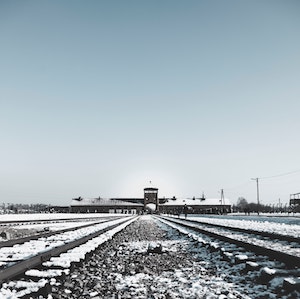
This should be self-evident – what did I expect when I started this series? – but in this alternate timeline, those camps have been active for fifteen years.
Relationship Status: Cautionary Tale
This alternate history never happened, but it could have. (Okay, except for the shapeshifting.) I still found it alarmingly relevant for today.
Literary Matchmaking
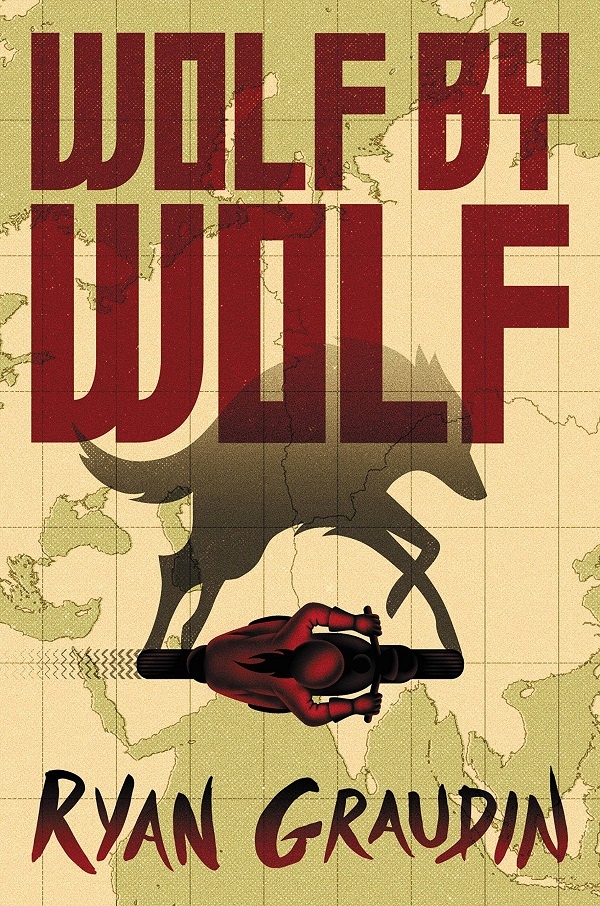
Wolf by Wolf (Wolf by Wolf #1) by Ryan Graudin is the prequel to this story.
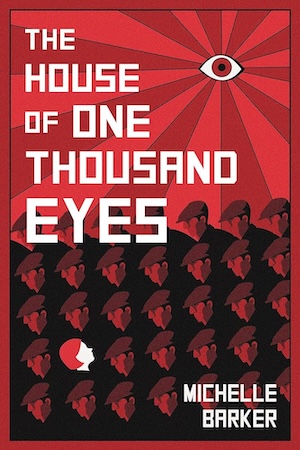
The House of One Thousand Eyes by Michelle Barker also takes an unflinching look at Germany’s past.
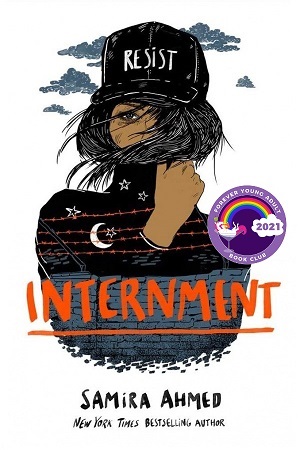
Internment by Samira Ahmed holds a similar alternate-history warning message for the United States.
FTC Full Disclosure: I received no compensation for this review. Blood for Blood is available now.